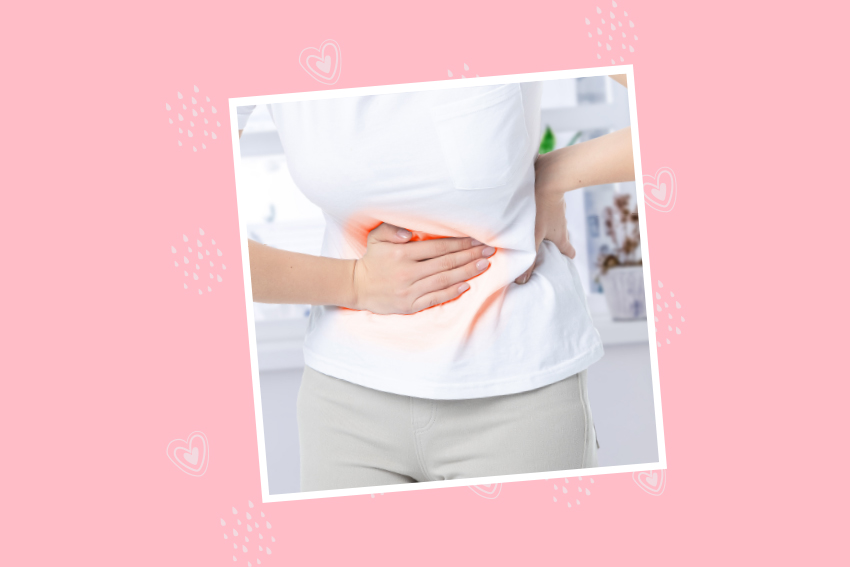Menstrual Cramps : Symptoms Causes and Treatment
More than half of women who menstruate have pain during their periods. Such pain, referred to as dysmenorrhoea is usually mild, but in some women, it can be disturbing and severe which can keep them from doing their daily activities.
Types of Dysmenorrhoea and Nature of pain
A woman with painful periods can either have a primary or secondary type of dysmenorrhoea.
Primary- This is when painful periods are observed ever since a woman starts menstruating. Such pain usually starts a few days before the start of periods, continues for a day or two during periods, after which it starts decreasing and goes away by the end of it. The cause for this is usually hormonal variations that occur during periods. A hormone named prostaglandin is responsible for shedding of the uterine lining and causing bleeding during periods; during this process, it also results in such pain. This type of pain usually reduces after a woman gives birth to a child.
Secondary- In this case, a woman may have had normal periods, which become painful with time. The pain experienced due to this type is more severe. It usually starts a few days before the period begins, continues to increase as periods continue, and may not go away even after the period stops. Such pain causes discomfort on most days and may interfere with daily activities also. The reason for such pain is a disorder in the reproductive system and the following may be some causes of concern for this type:
- Endometriosis: This is the growth of the uterine lining in other areas of the body, such as ovaries, fallopian tubes, pelvic region, etc. By the stretch and scar of the uterus that occurs in this condition, pain may result.
- Adenomyosis: This is when the lining of the uterus grows inside the muscular wall of the uterus. This condition is more common in older women who have had children.
- Fibroids: These are non-cancerous growths inside the uterus. Though small fibroids may be non-painful, larger fibroids in the wall of the uterus can be a reason for pain.
- Other medical conditions- Such as cervical stenosis, Pelvic inflammatory disease, Chron’s disease or urinary disorders, etc. may also result in secondary dysmenorrhea.
Either type of pain may also be associated with symptoms such as diarrhea, nausea, vomiting, or headache in some women. Women with irregular periods, heavy flow during periods, family history of painful periods, and women who smoke, are more likely to experience painful periods.
Home care for painful periods
Some home remedies can be followed by women for relief of pain and discomfort during periods. This can include:
Exercising: Regular exercising during other days of the month can help one stay fit and it also helps in the production of some chemicals which block pain. Jogging, walking, aerobics, swimming, etc. should be followed by women for a better lifestyle.
Heat application: To soothe painful periods, local application of warm pads, hot water bottle over the abdomen, or taking a warm shower can be helpful.
Sleep: Adequate rest can help one cope up with discomfort during periods.
Relaxation therapy: Meditation, or yoga can be practiced for relaxation and can help one cope up with pain.
Medication: Over-the-counter painkillers such as NSAIDs can help one during such pain. Such medication should be taken at the first sign of pain, but should not be taken by women who are asthmatic, who have gastrointestinal problems, ulcers, bleeding disorders, or who have an aspirin allergy. It is always recommended to inform the gynaecologist about the usage of any such medications.
When should one meet a gynaecologist?
It is recommended to speak to a gynaecologist near you in case of painful periods. If the pain is of not much concern, then your gynaecologist may recommend reinforcement of home care.
However, in some cases, your gynaecologist may recommend a pelvic examination or other tests like an ultrasound or laparoscopy depending on the severity of the condition. Treatment for painful periods not relieved by simple measures at home can be provided by the gynaecologist, and depends on the underlying cause of it.

